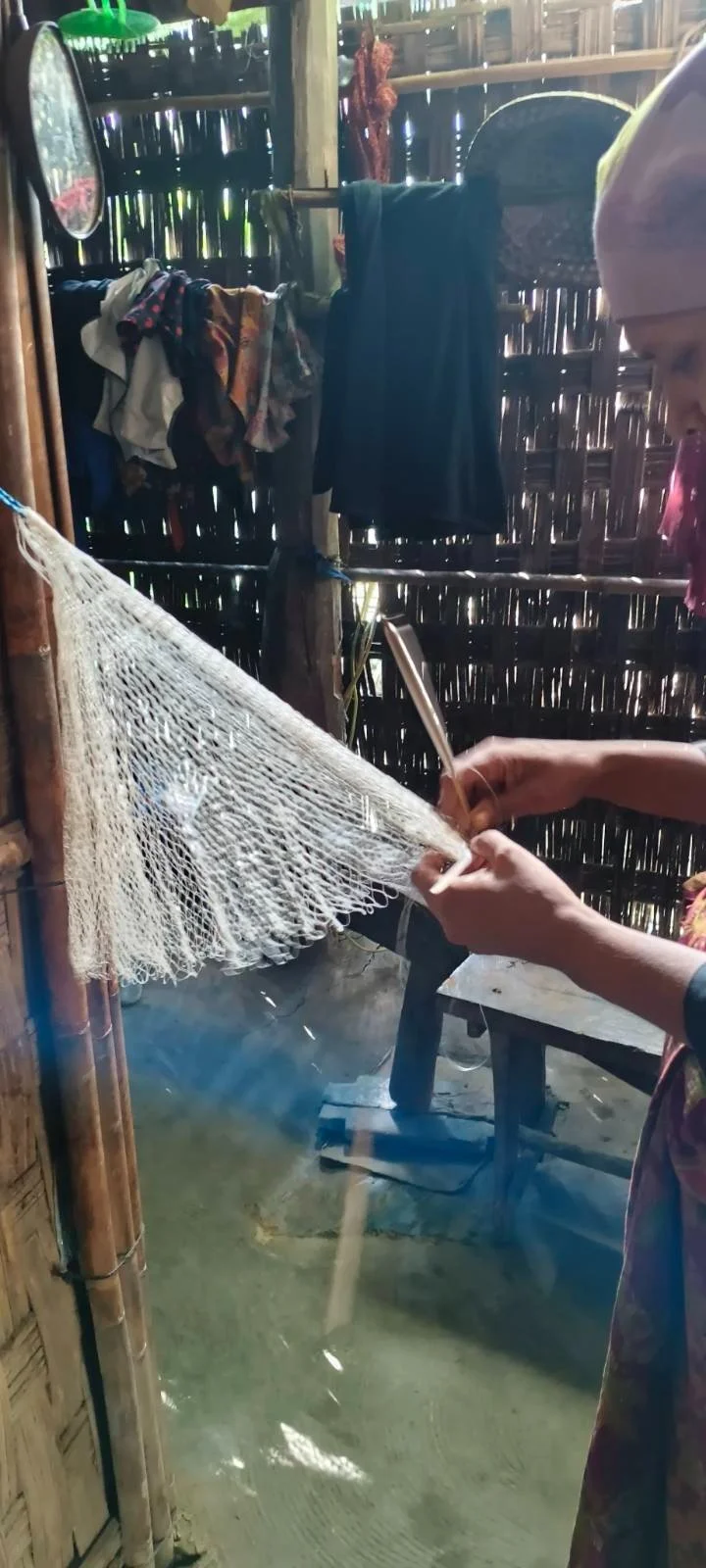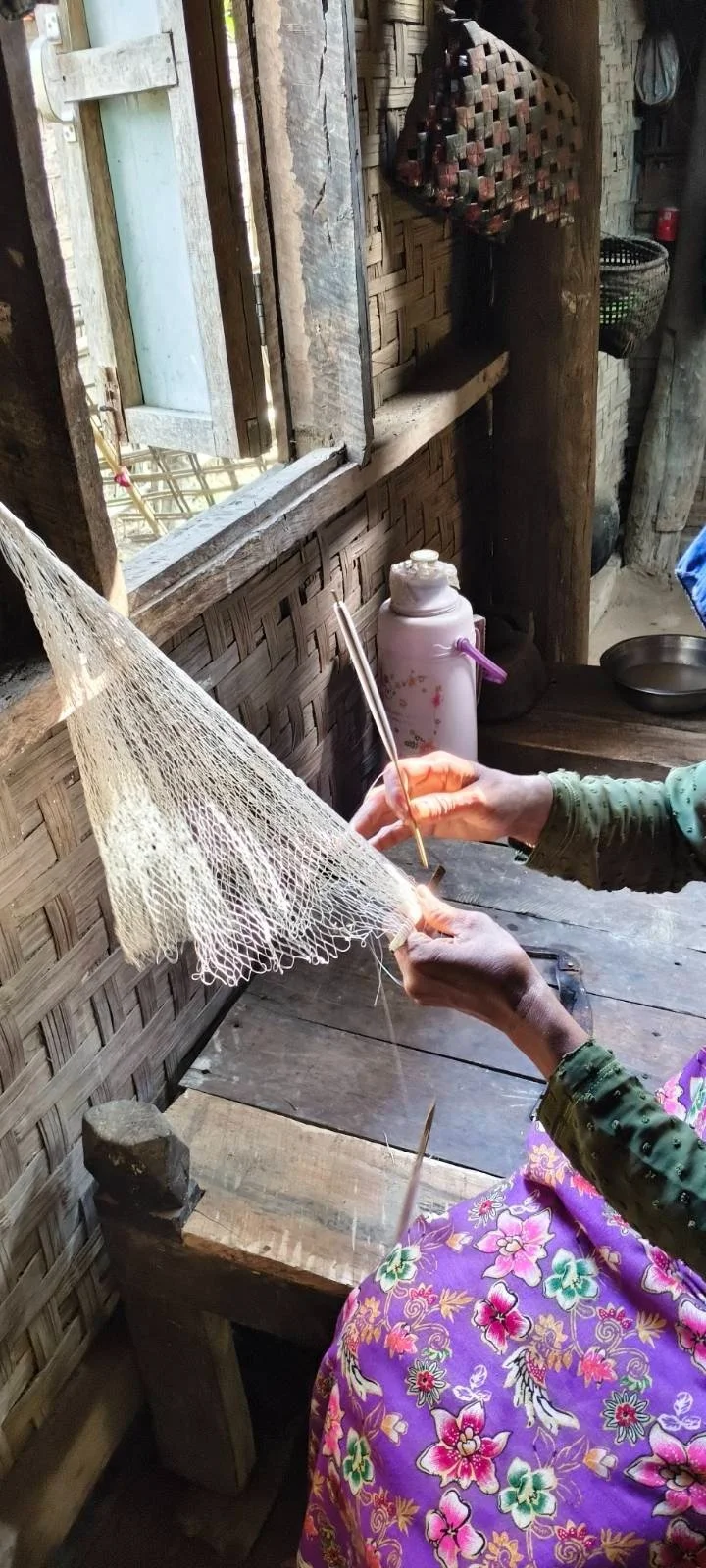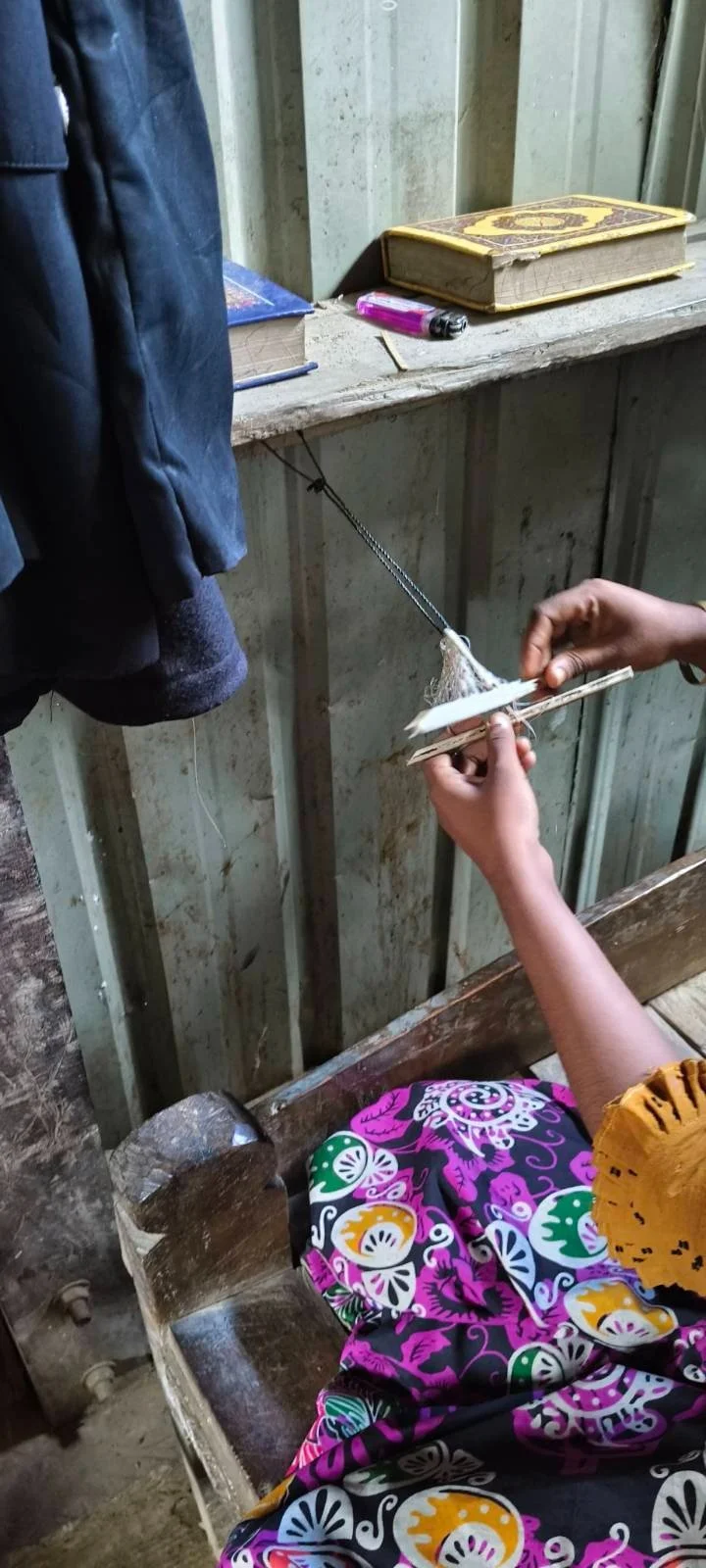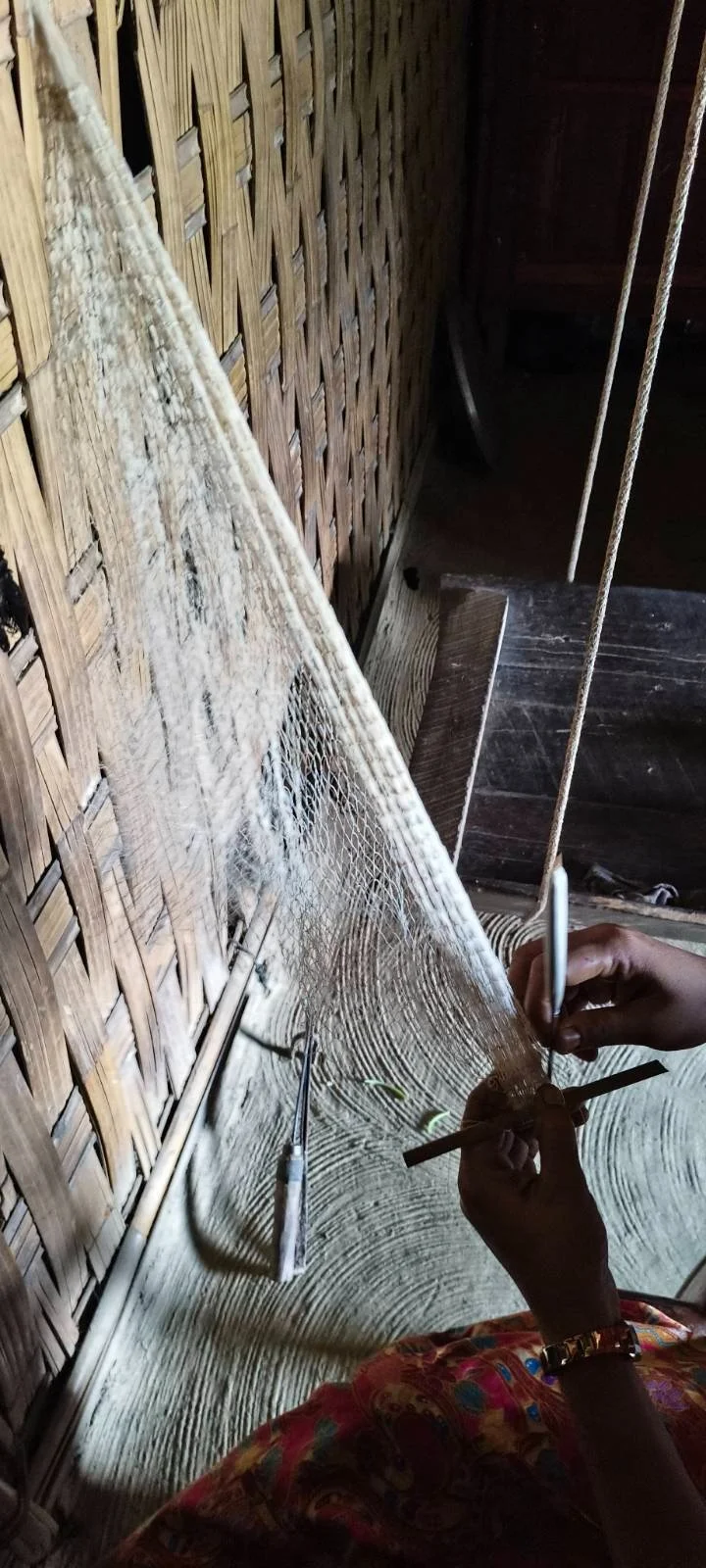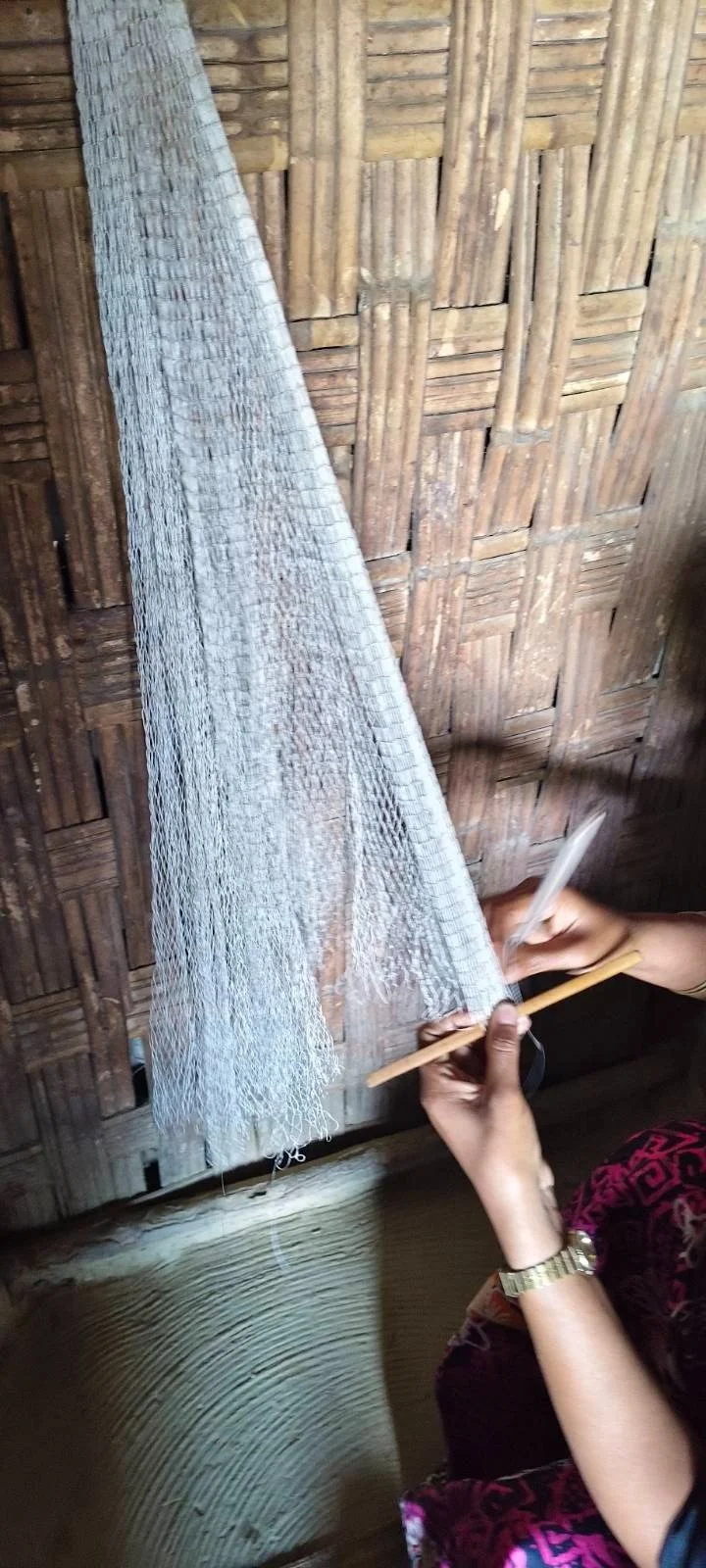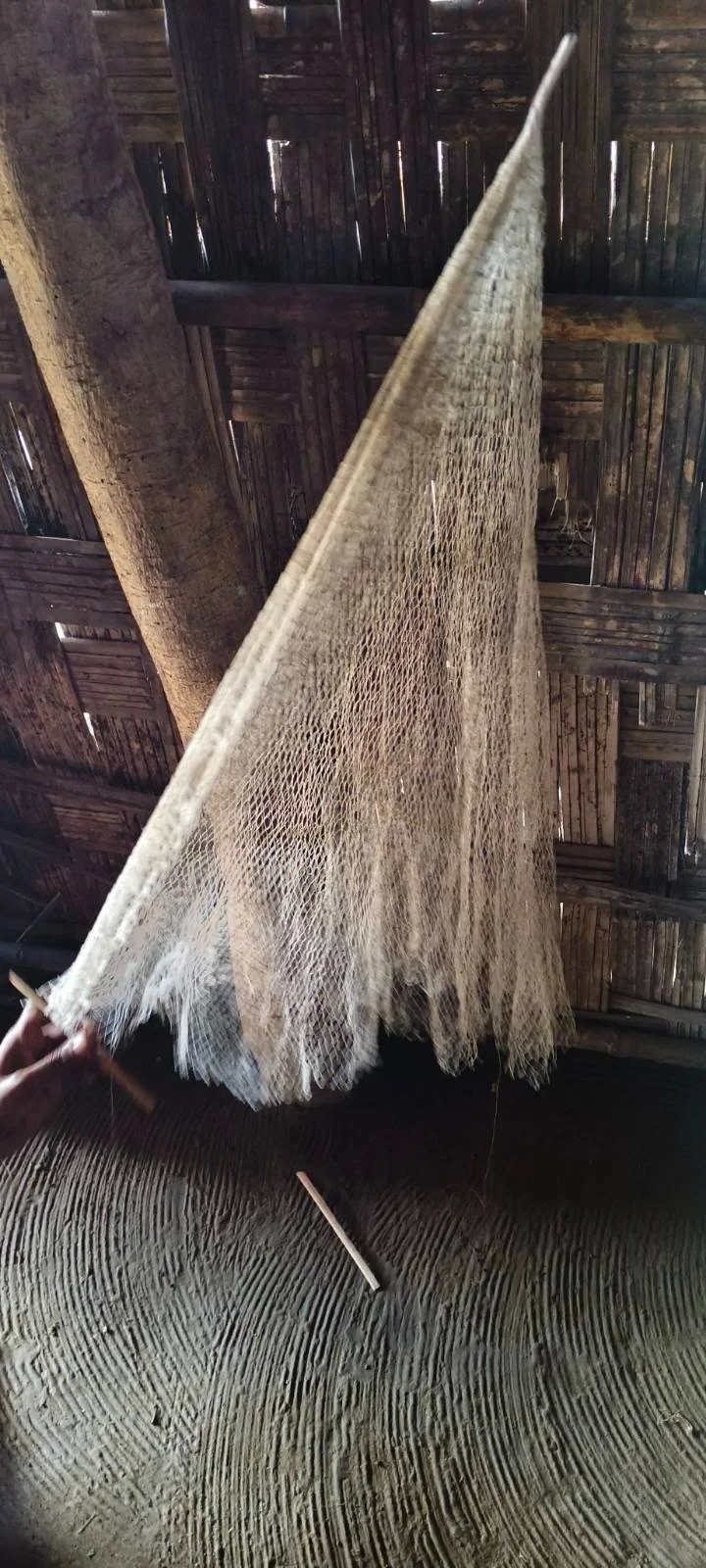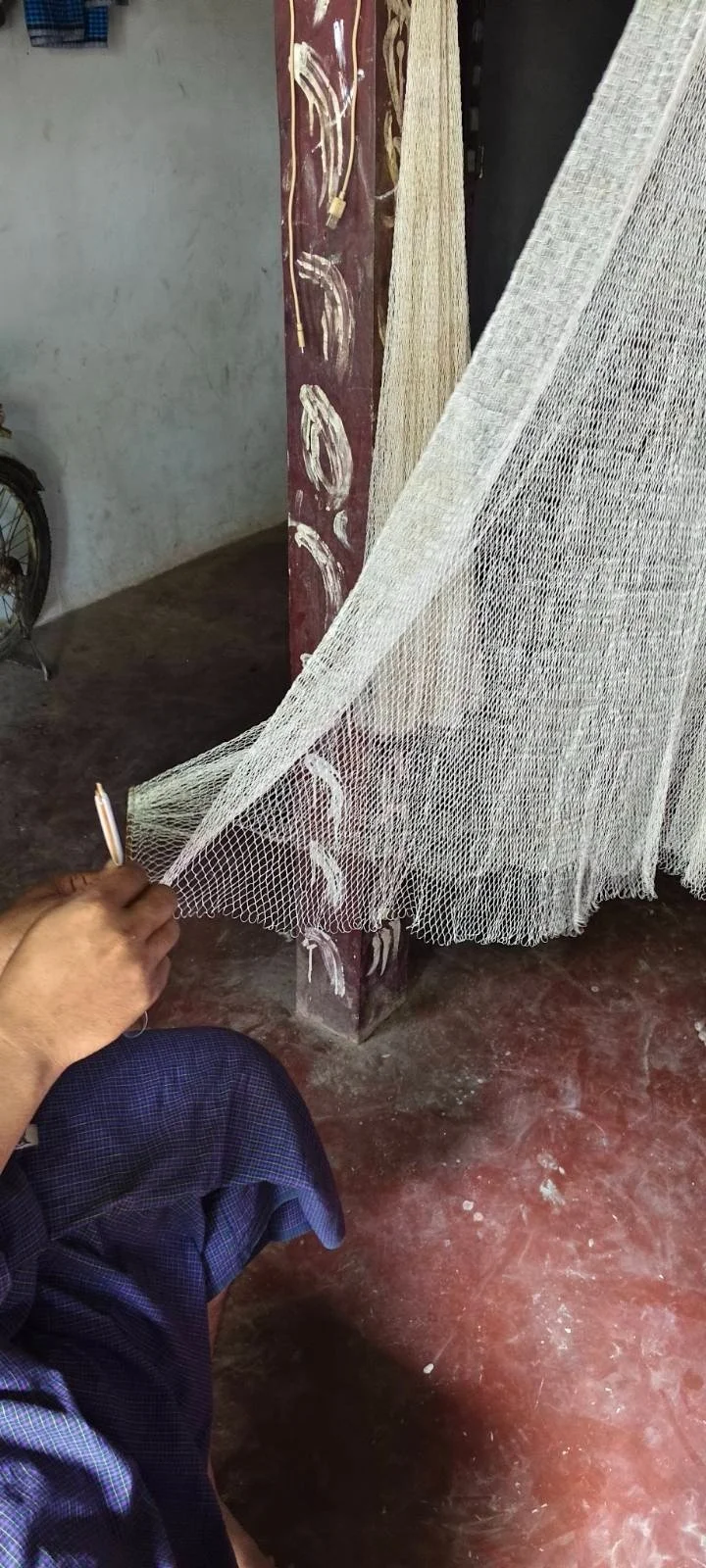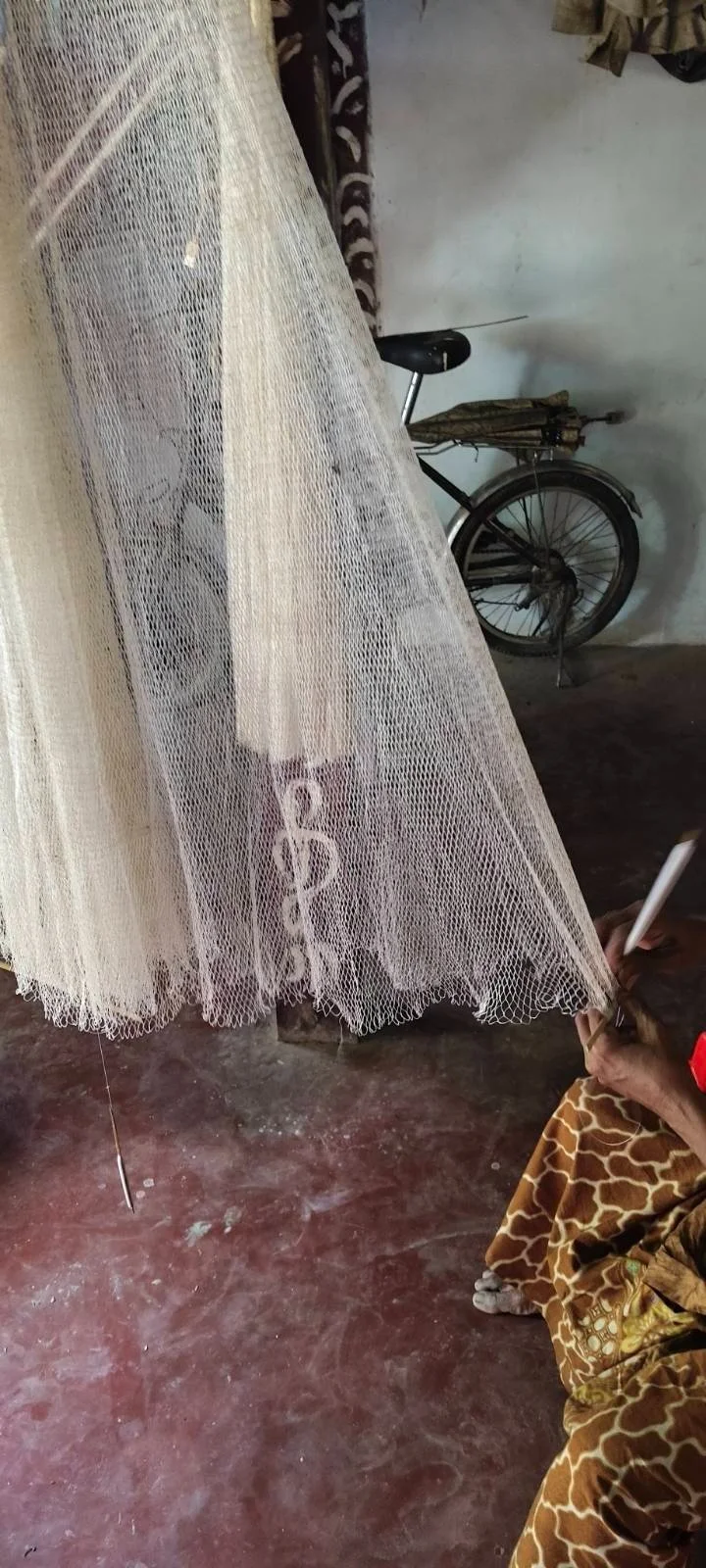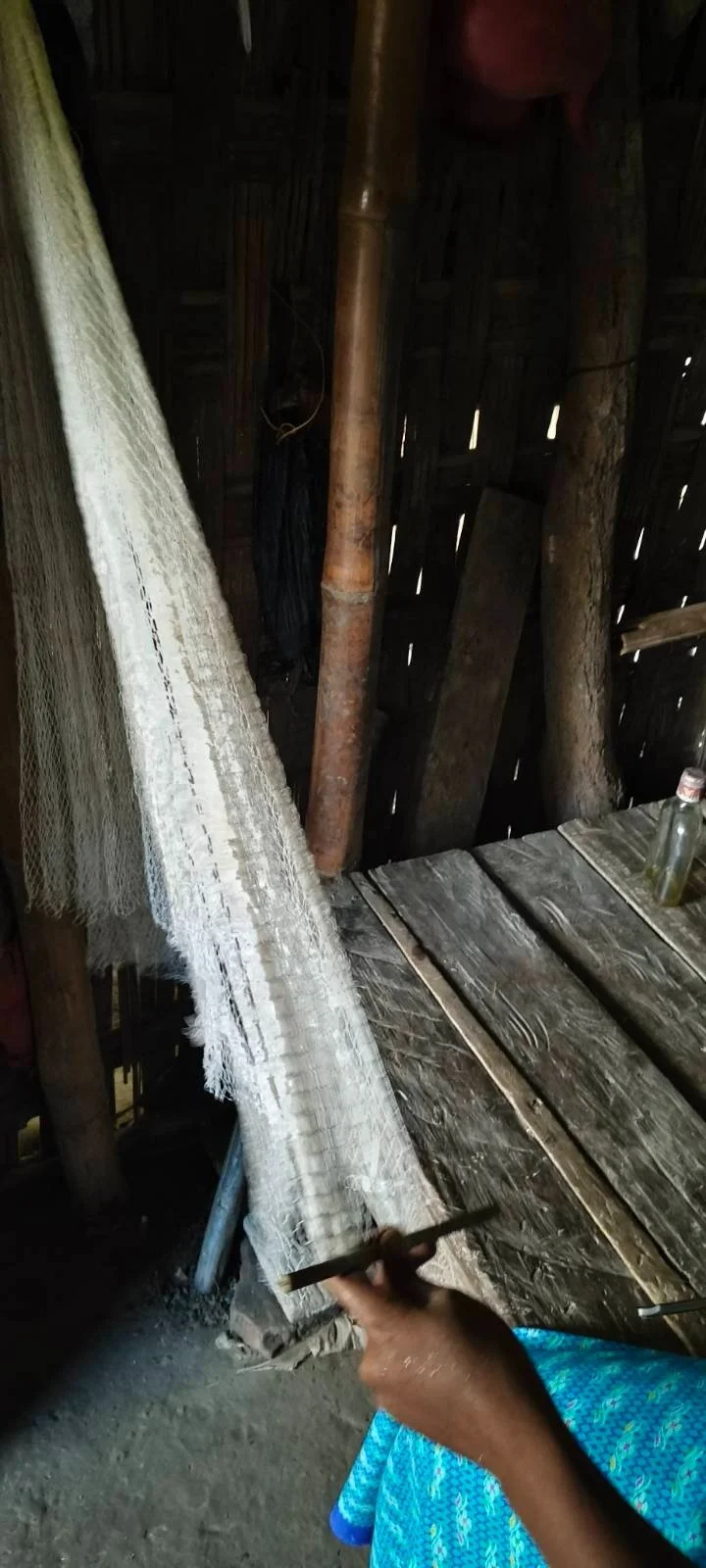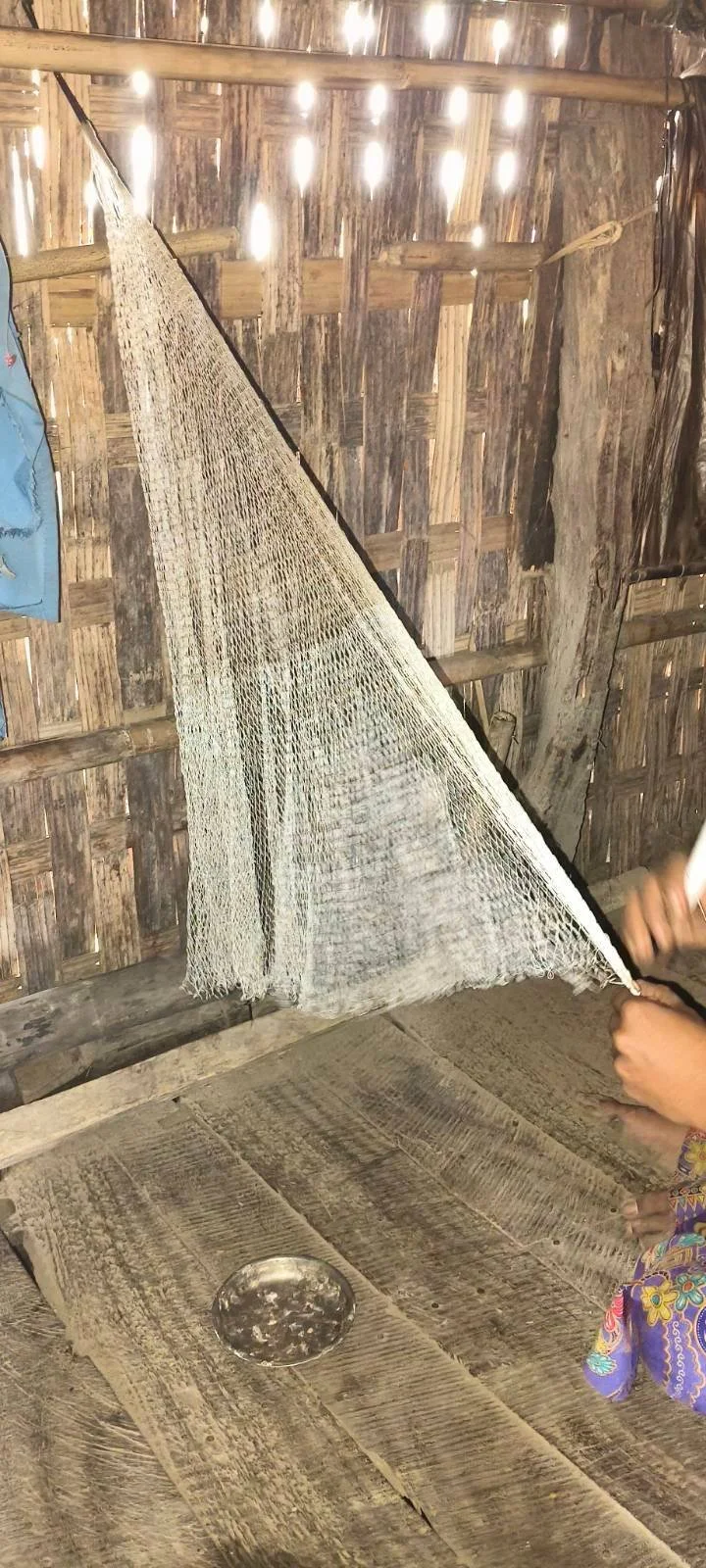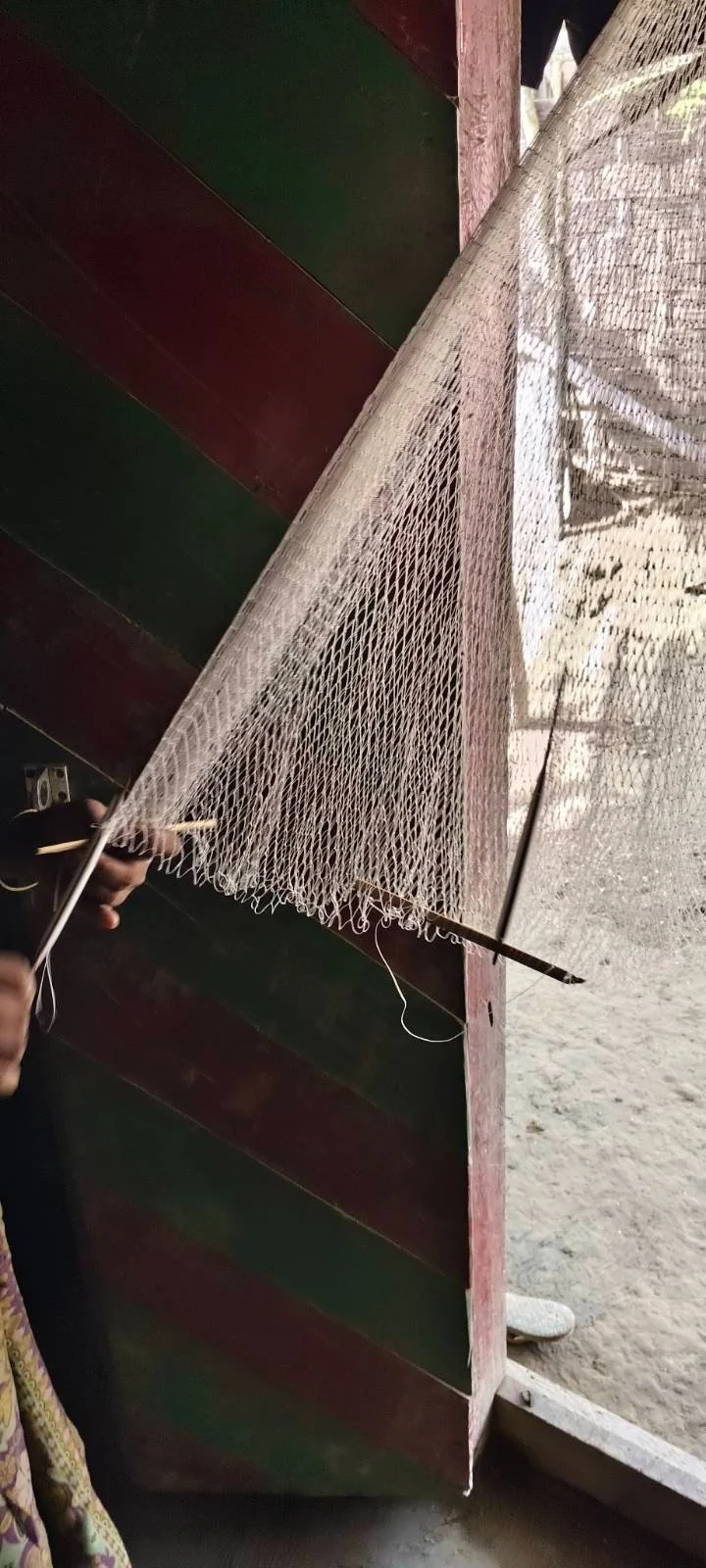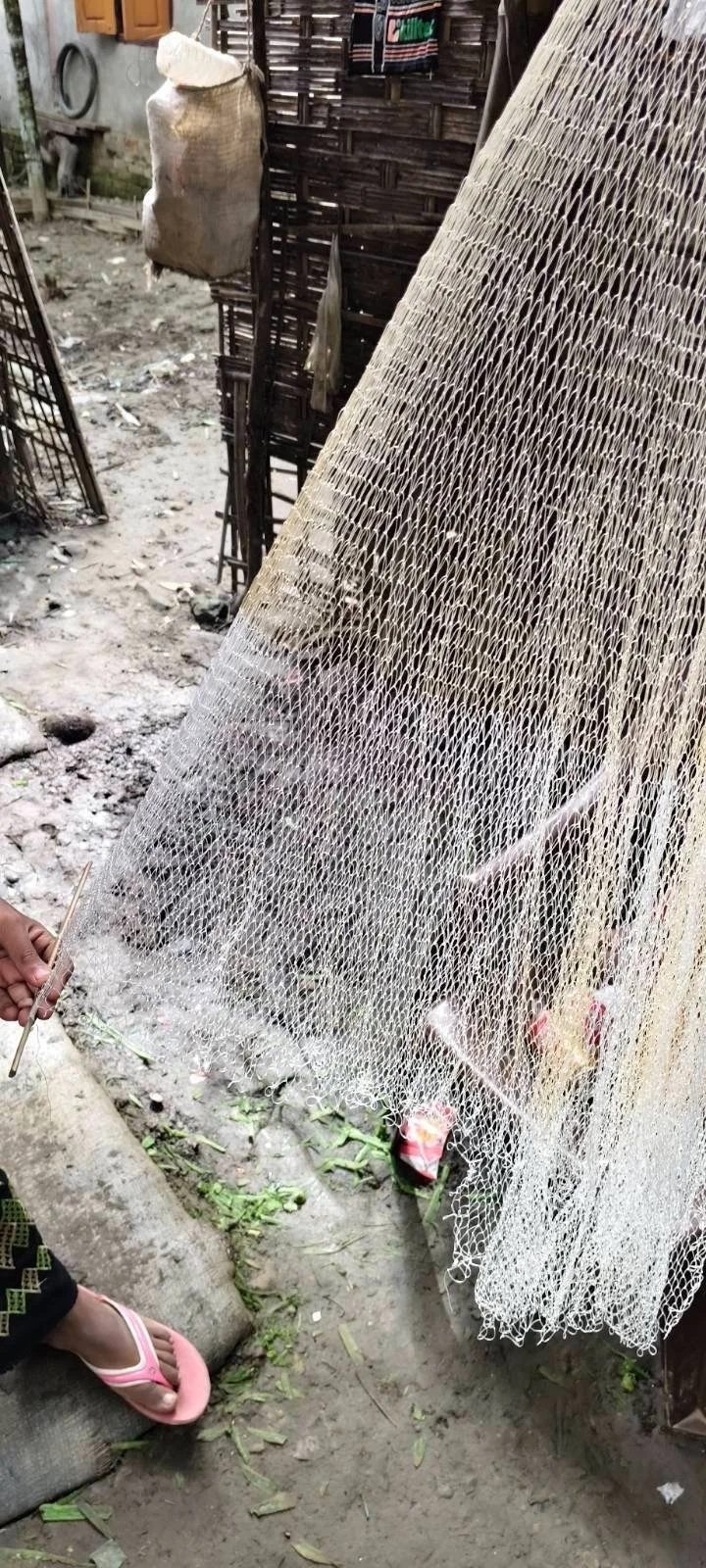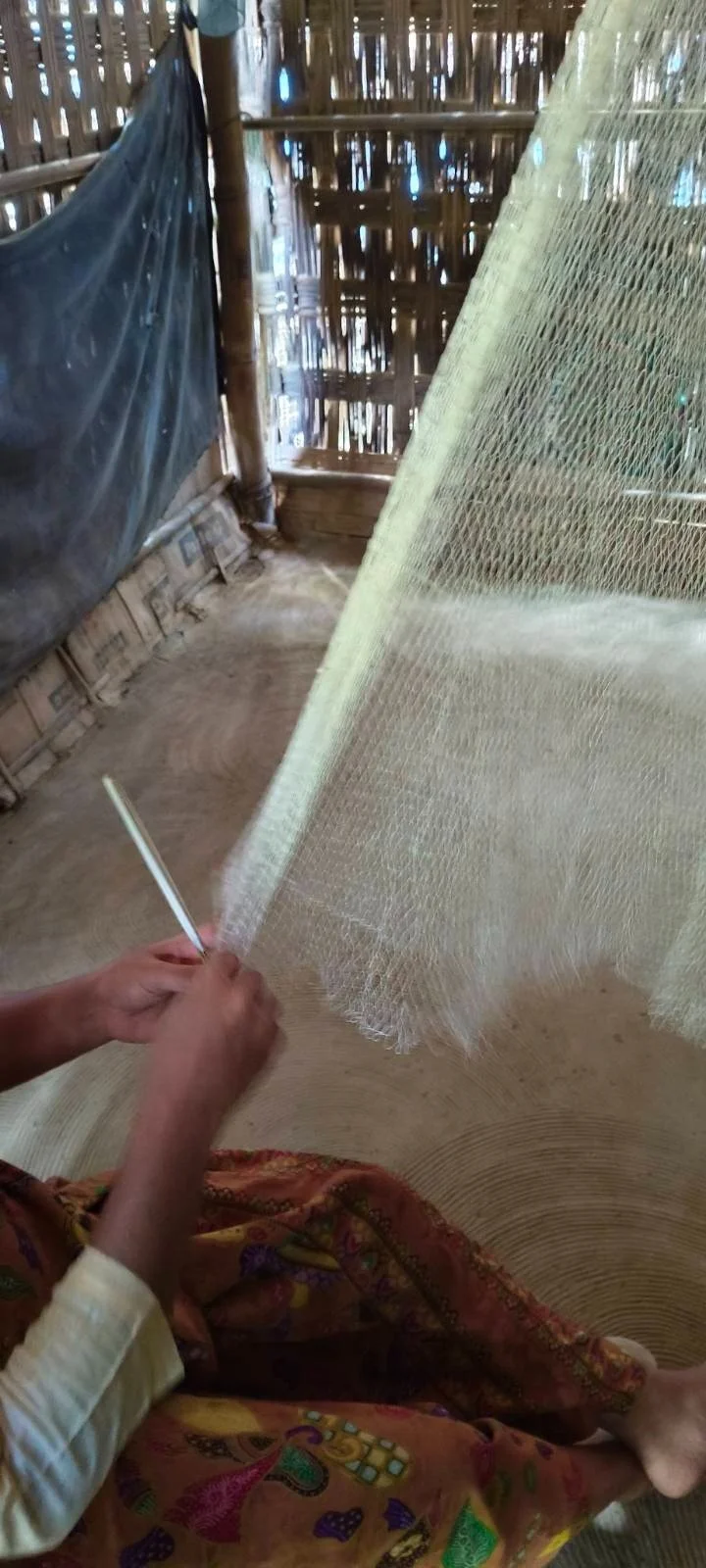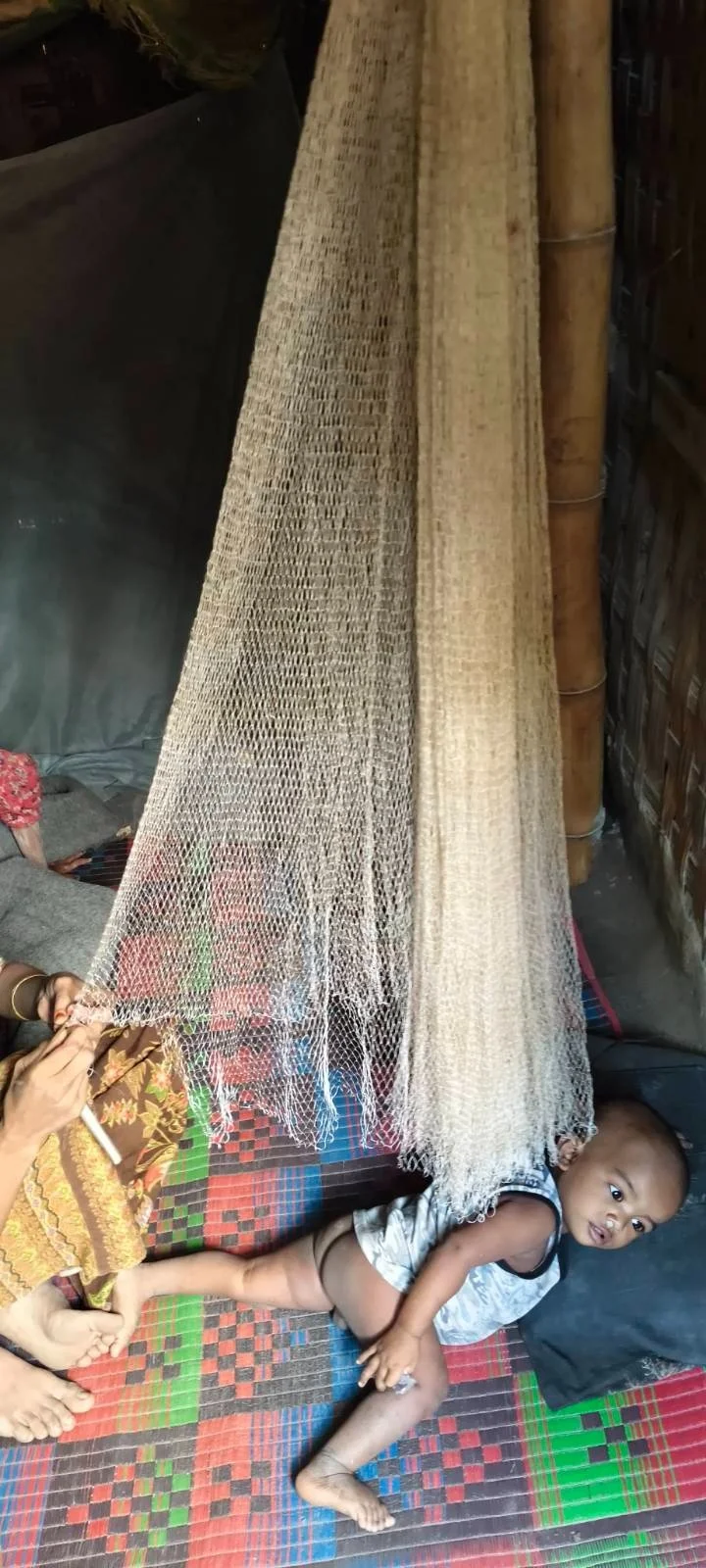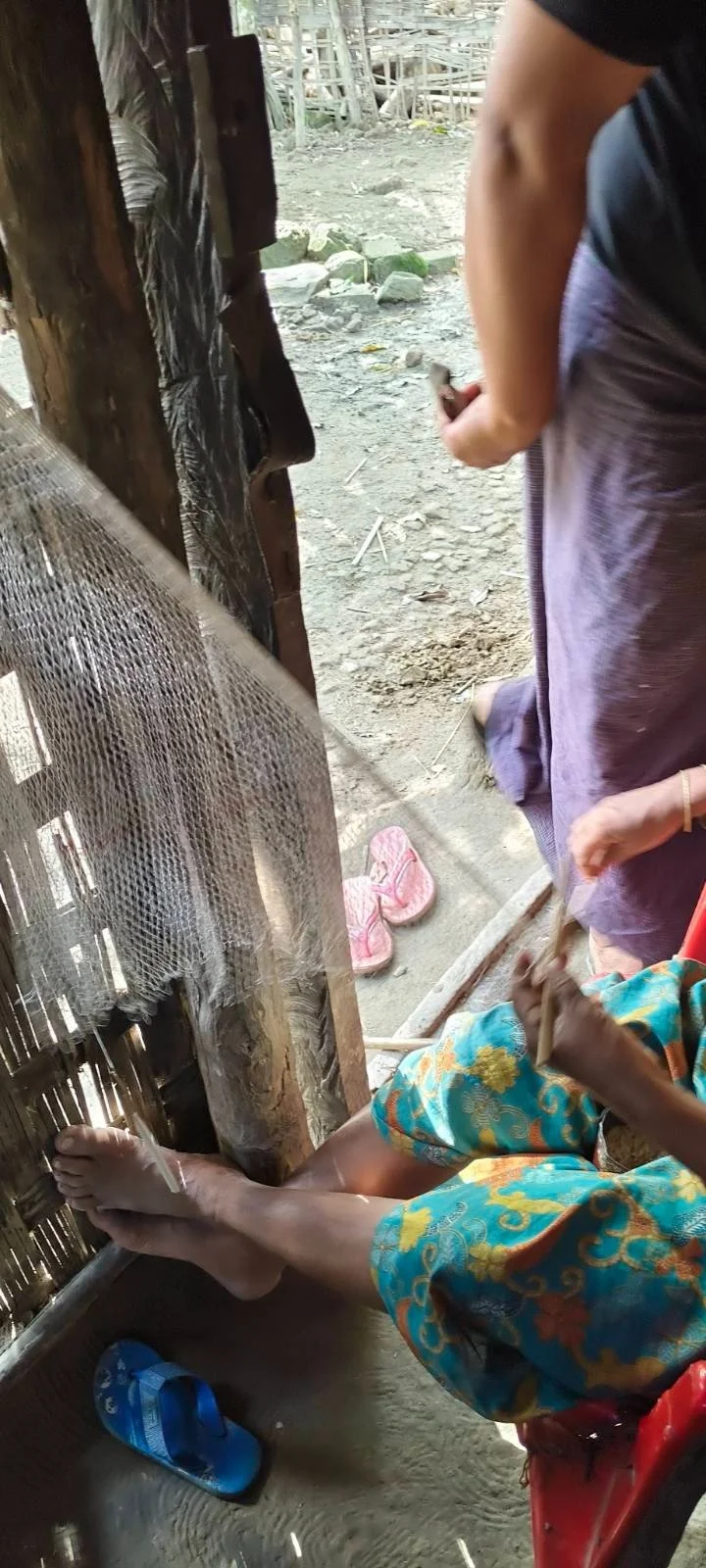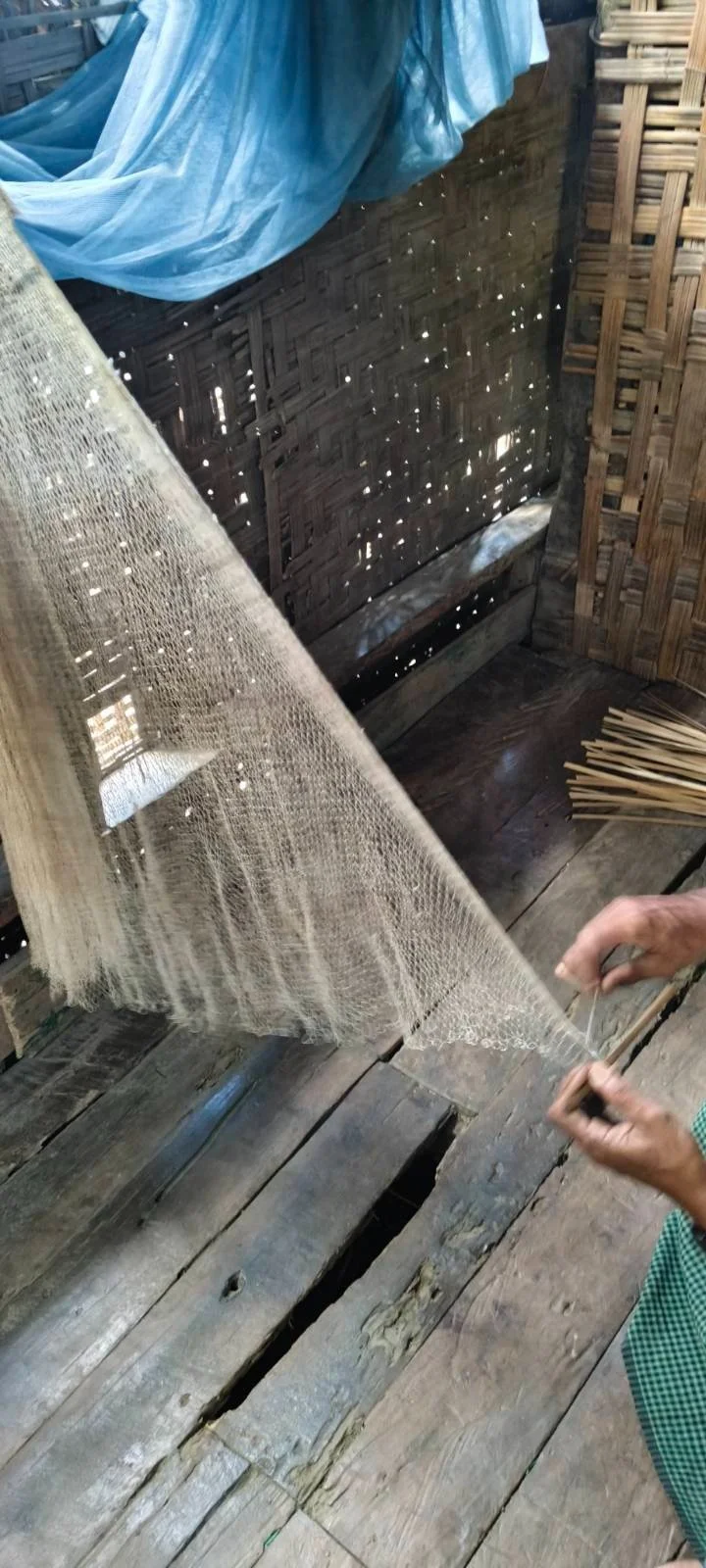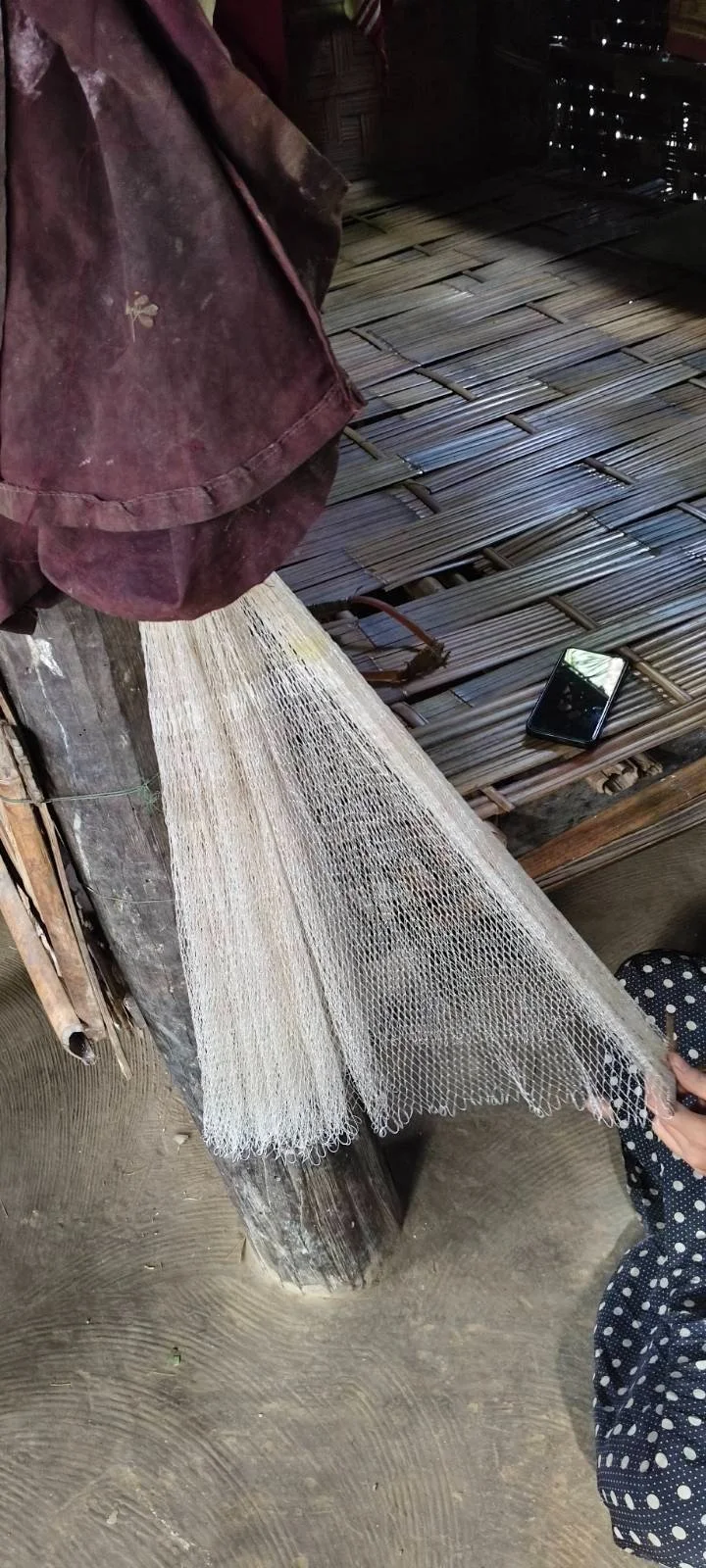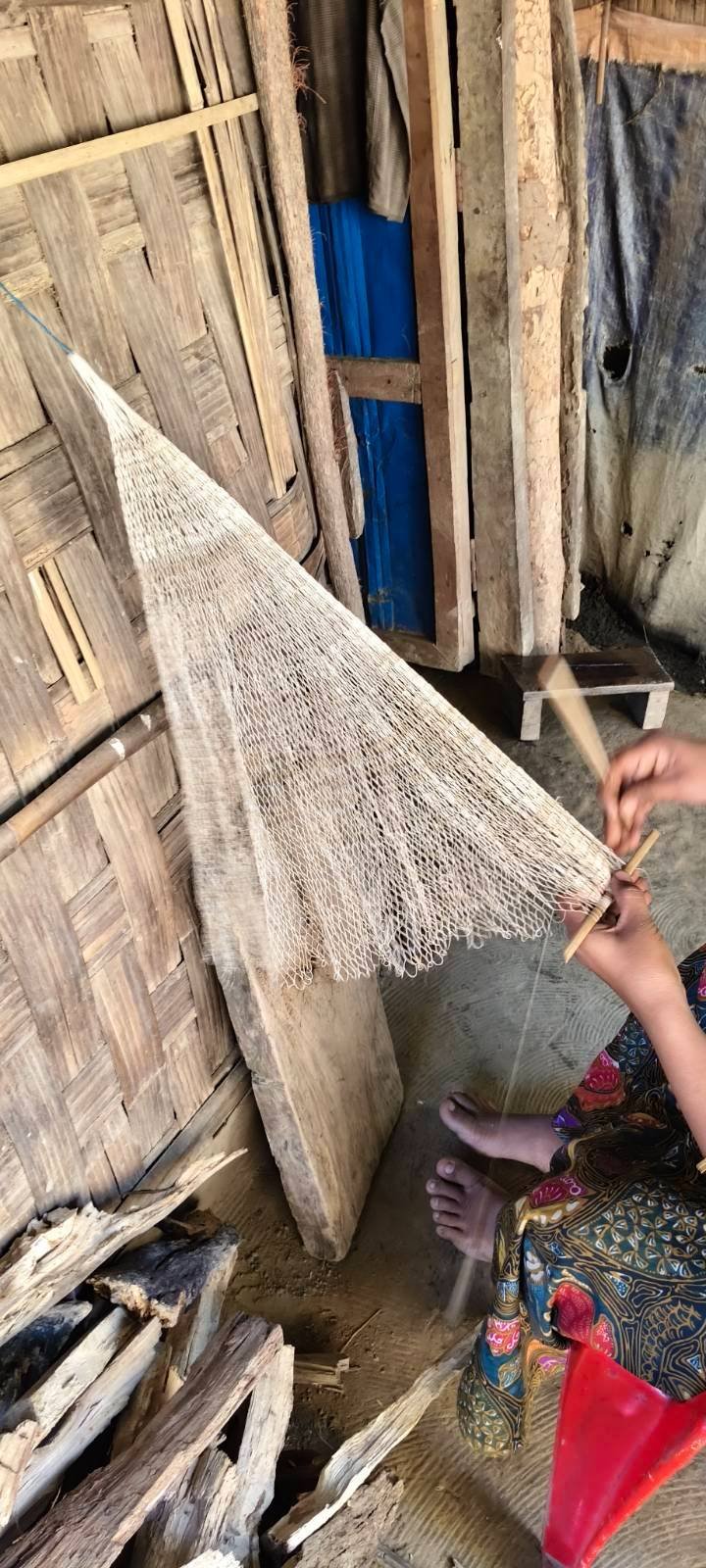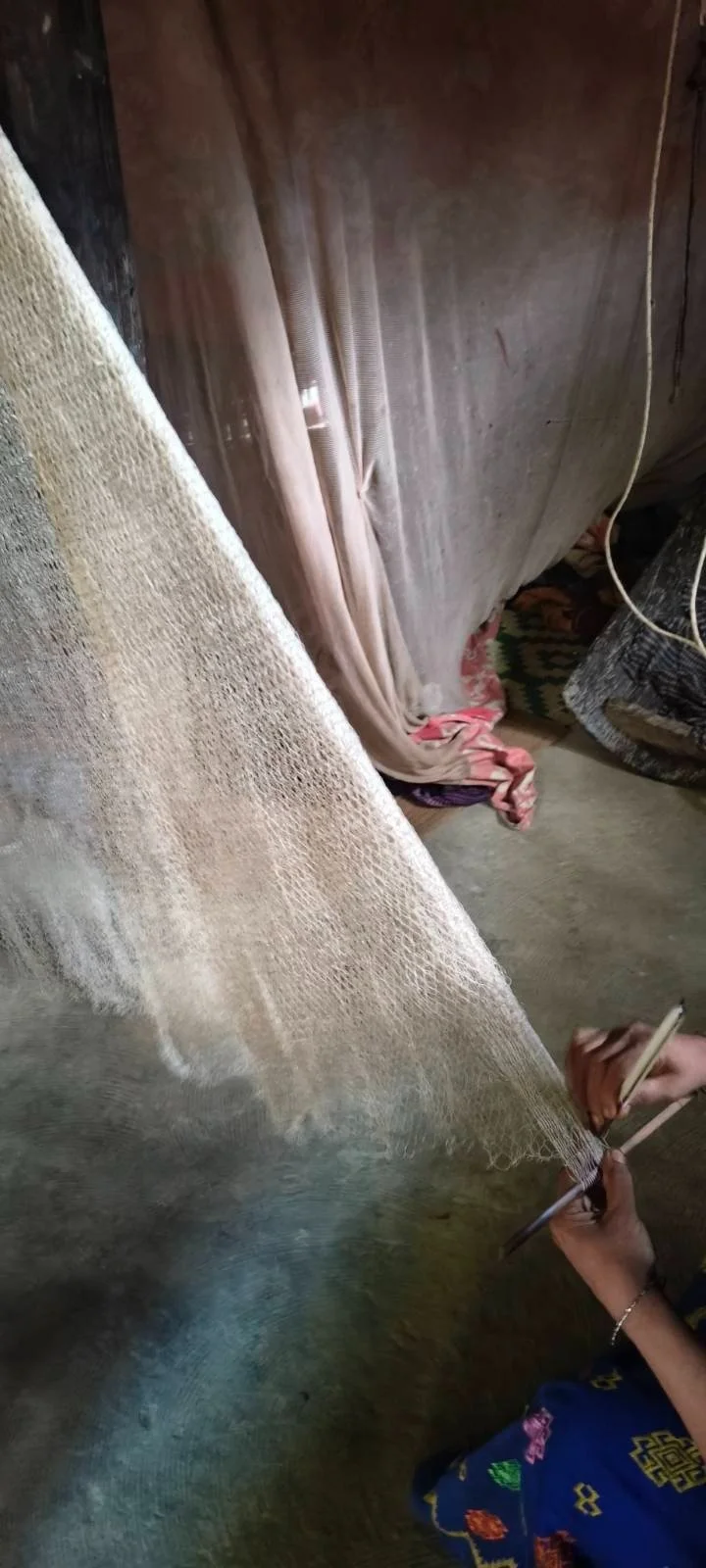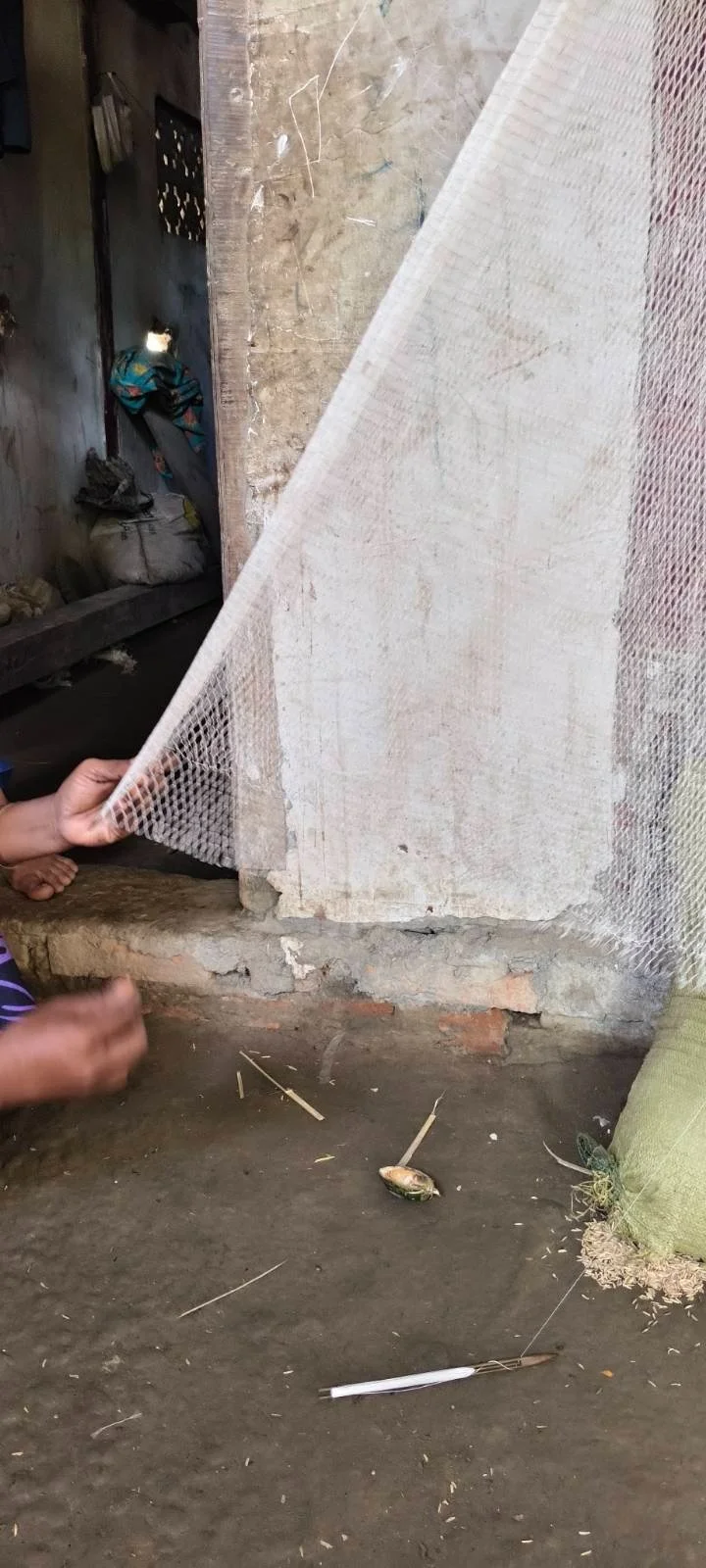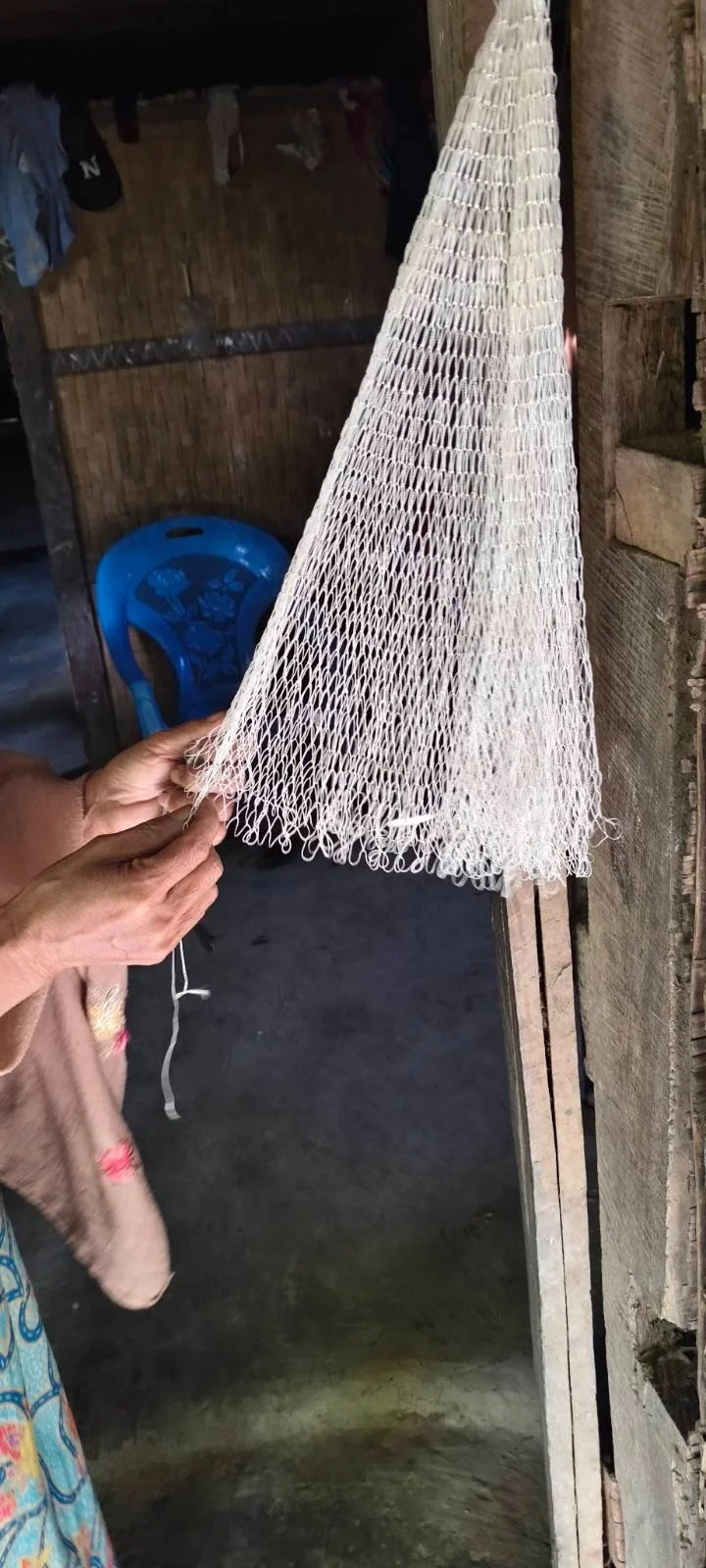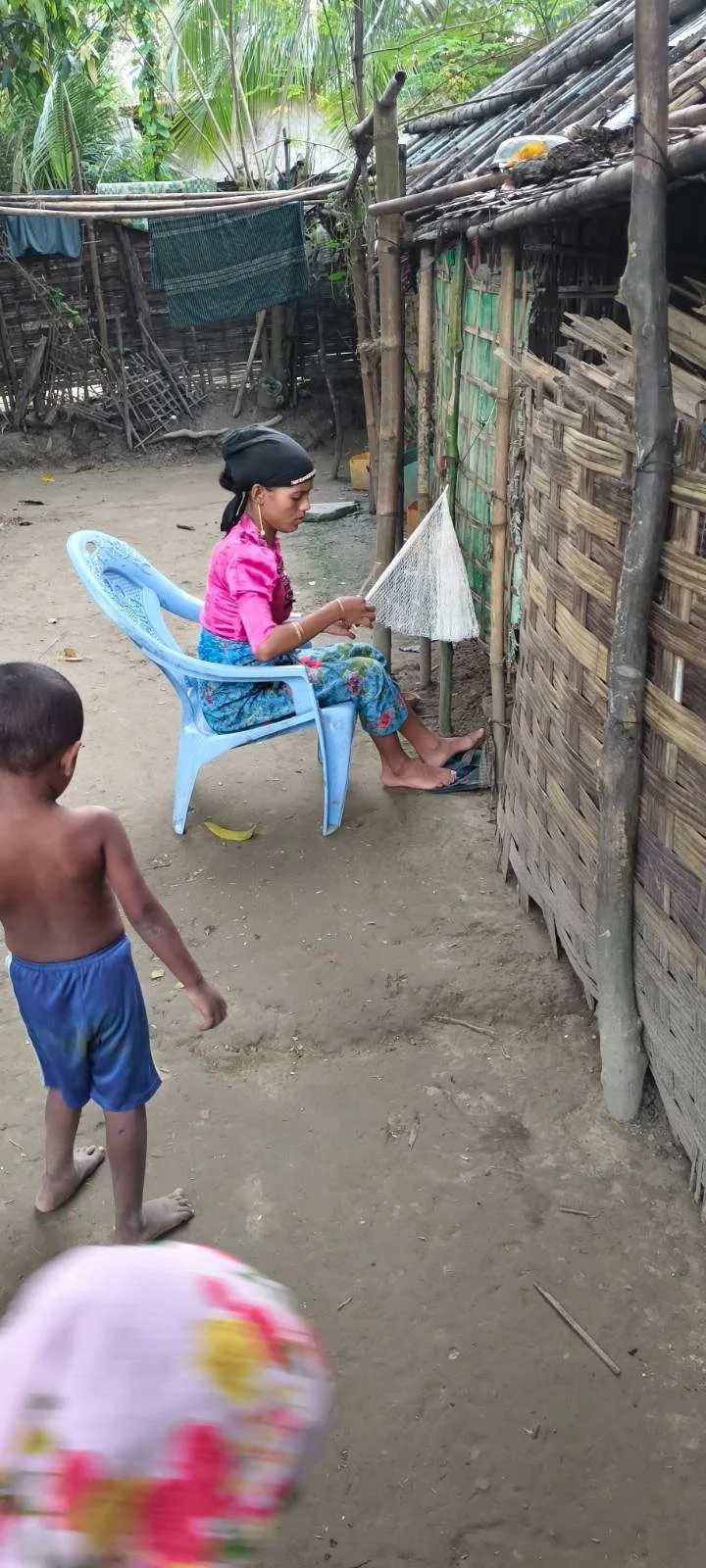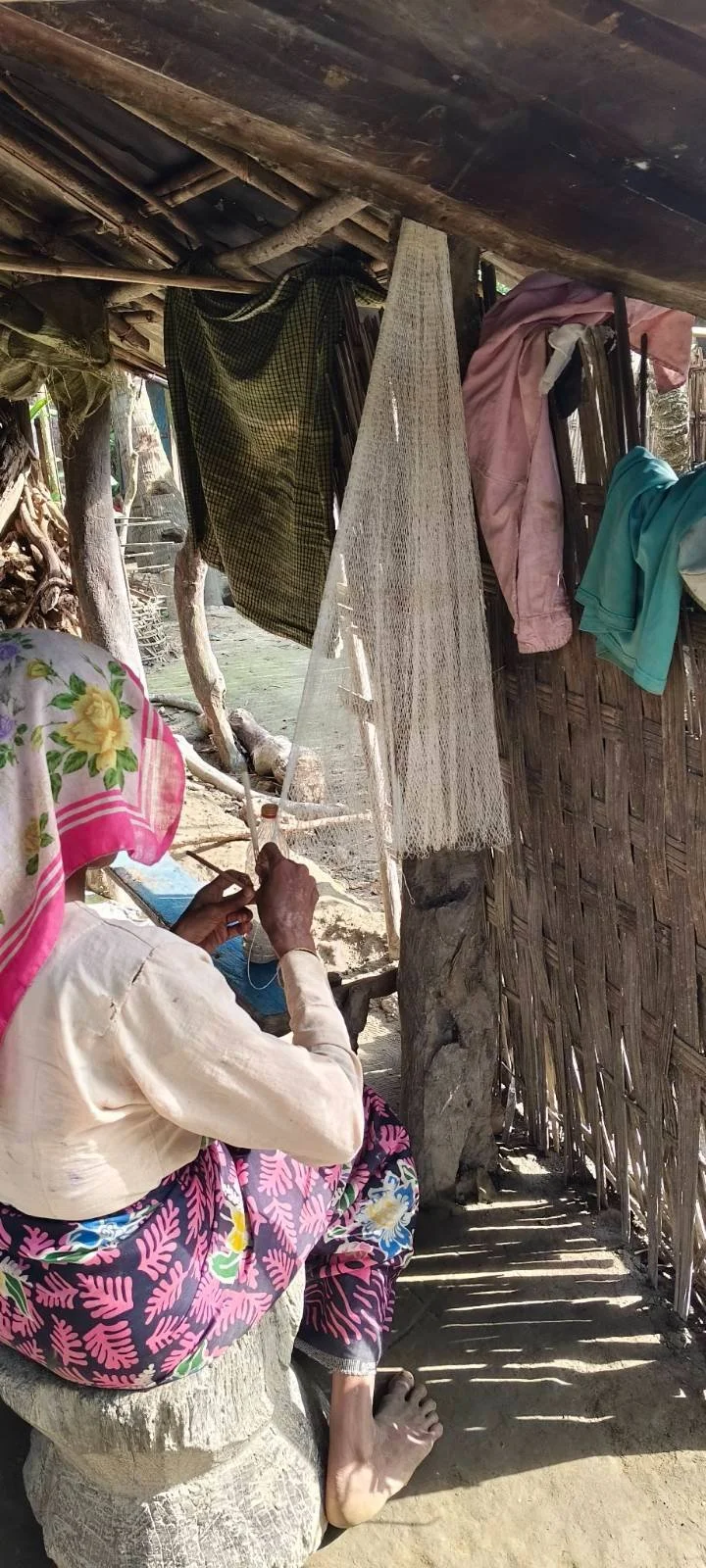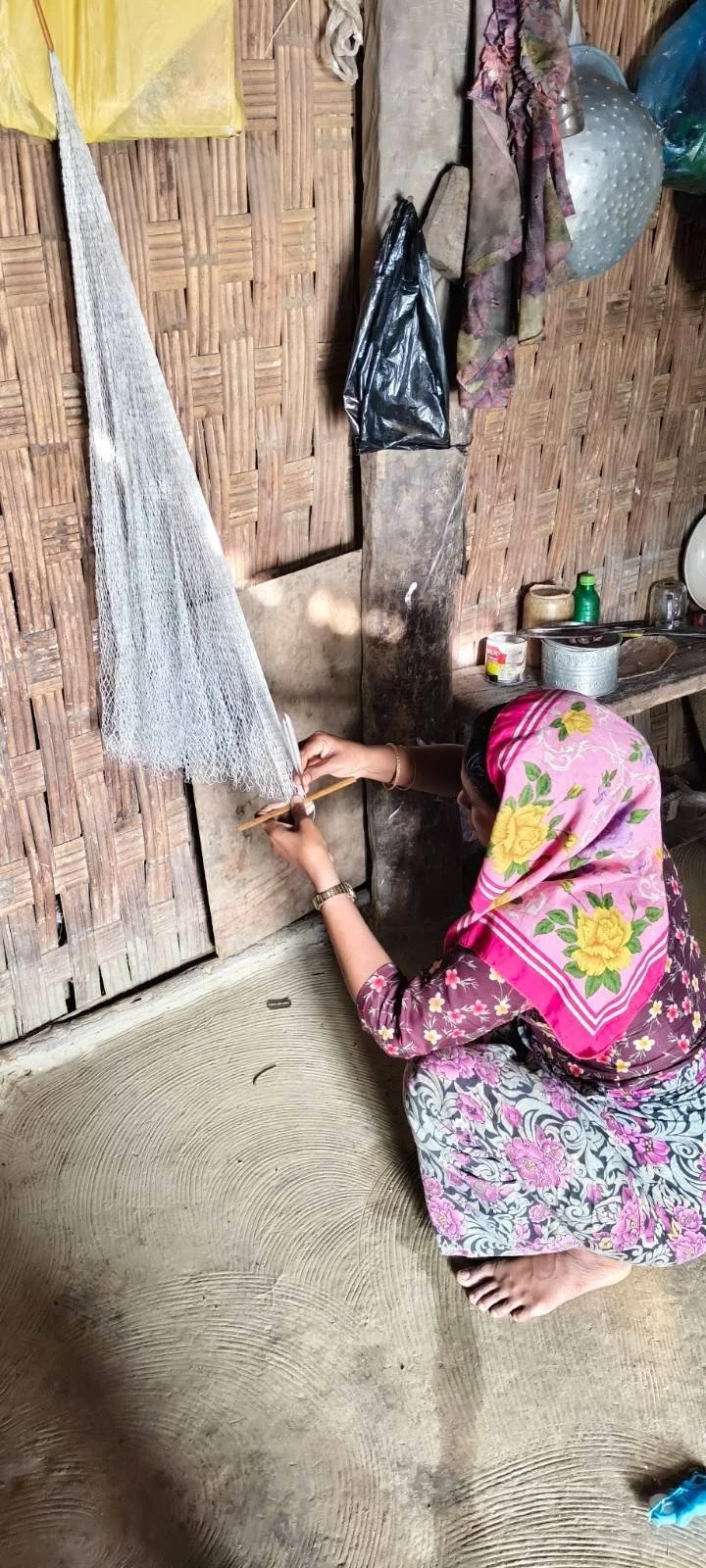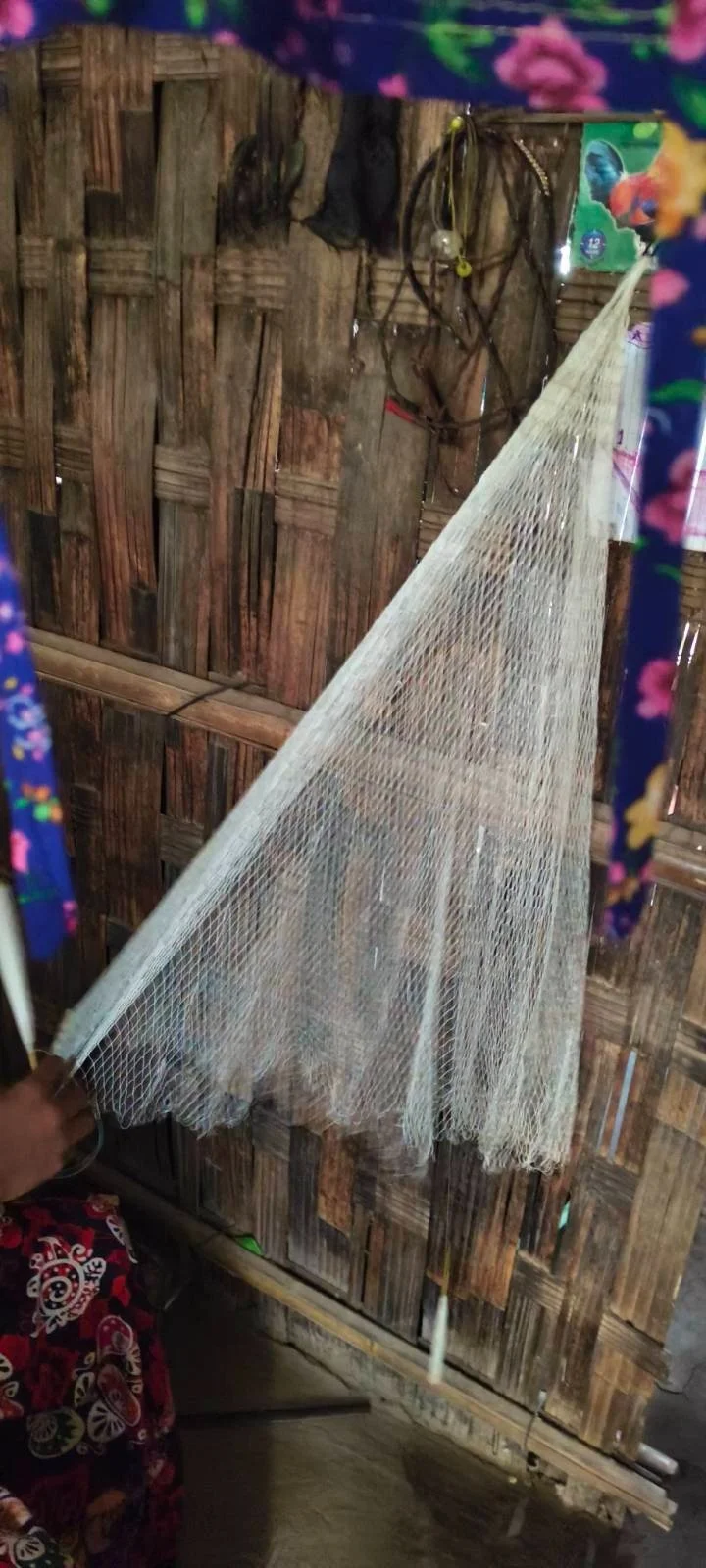Weaving Strength
Along the western coast of Myanmar, in the quiet villages of Rakhine State, the sound of steady hands weaving fishing nets fills the air. Beneath the shade of bamboo homes, groups of women sit patiently, threading fibers into the traditional Jaal nets that have sustained generations of local families.
The work is slow and painstaking, each net takes nearly a month to complete. A single piece requires around 80,000 MMK in materials and labor, yet brings in just 180,000 MMK when sold. The earnings may seem small, but for women from low-income households, every sale means food on the table, school supplies for their children, and a sense of dignity in being able to provide.
Traders and brokers come from nearby townships to purchase the finished nets, which are then sold in village bazaars, distributed across the country, and even taken across the border to Bangladesh. But while the nets travel far, the women who make them rarely leave their villages. Their lives are shaped by a fragile balance of daily survival, as most families rely on uncertain day labor, earning barely 15,000–20,000 MMK a day, often not enough to cover basic food expenses.
Understanding this struggle, Better Burma and our local partners identified the most vulnerable women in two Rakhine villages, those without stable work, widows, or sole caregivers, and offered small-scale livelihood support. Each woman received 80,000 MMK, covering the cost of raw materials and giving them a fair chance to earn through their own skill.
In total, 99 women, representing 99 families and 559 individuals, were supported through this initiative. This modest financial boost creates a ripple effect: one woman’s woven net becomes a lifeline for her entire household. It allows her to work from home, care for her children, and regain control over her livelihood without the risk of debt.
Beyond economics, the Jaal nets carry cultural meaning. They embody the resilience of women who refuse to be defined by hardship. Each strand represents not only labor, but also identity, a link between tradition, survival, and quiet strength.
By supporting these women, we aim to do more than fund a craft; we’re helping preserve a way of life while building pathways to long-term security. Projects like this show that sustainable change often begins with simple acts of empowerment, providing tools, trust, and opportunity.


